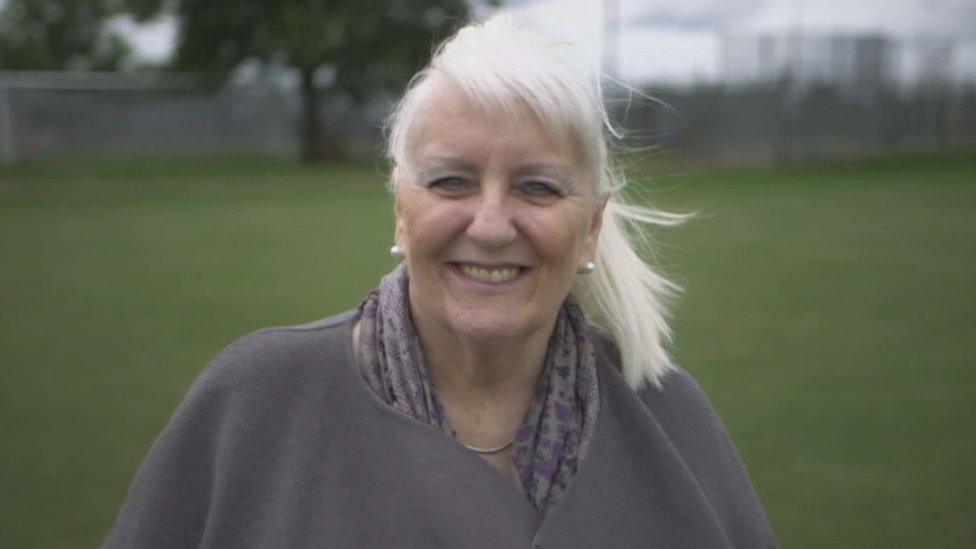Reflections on impact of Lionesses' victory one year on
- Published
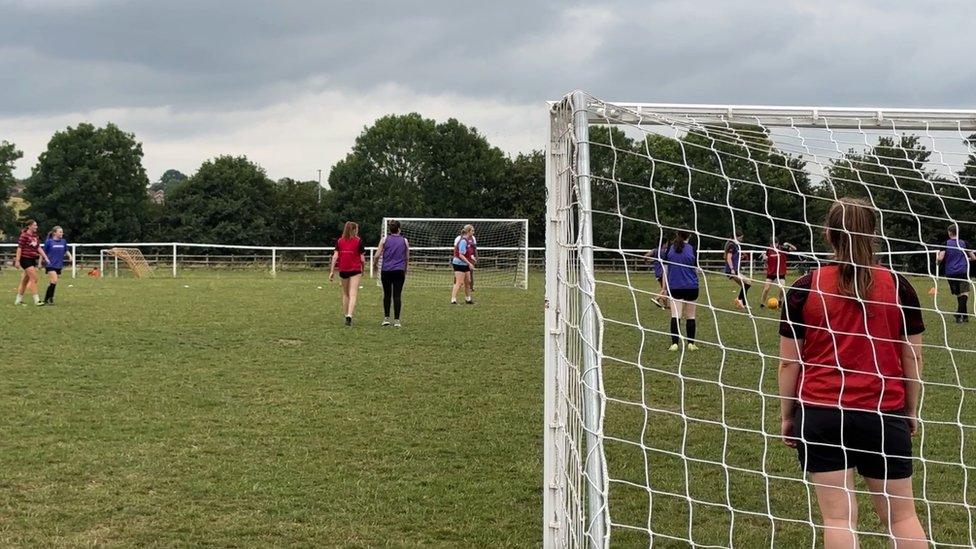
Trowbridge Wanderers FC's Ladies Team has seen a surge in the number of women and girls interested in playing
Women's football has seen a surge in popularity since the Lionesses lifted the trophy at the UEFA Women's European Championships on 31 July 2022.
The final was the most-watched women's football game on UK television, whilst a record 87,192 fans were in attendance at Wembley Stadium.
FIFA said it is working to grow women's football, external and it remains a "top priority". But one year on from the Lionesses' victory, some feel the gulf between the men's and women's games is still too wide.
Her Game Too is a voluntary organisation which was founded in May 2021 by a group of female football fans, external.
The group is working to drive positive change in the industry by raising awareness of sexism, as well as educating people on the importance of promoting diversity and inclusivity.
Caz May, one of the founders and directors of the campaign, is a supporter of Bristol Rovers.
"Unfortunately, over the years of going to the men's games I've been subjected to sexism, misogyny, made to feel unwelcome… because I was a woman," she said.
"It was a case of just feeling like I had to constantly prove myself more to be seen and to be heard."
'much to aspire to'
The campaign group has introduced reporting systems into 70 clubs around the country, enabling women to safely report incidents of sexism or abuse.
It is also working to increase women's attendance at men's games, currently women represent only 18% of those football crowds.
"Young girls are starting to see their heroes lifting a trophy," she said.
"There's just so much that these young girls can aspire to, and it gives them that motivation to carry on."
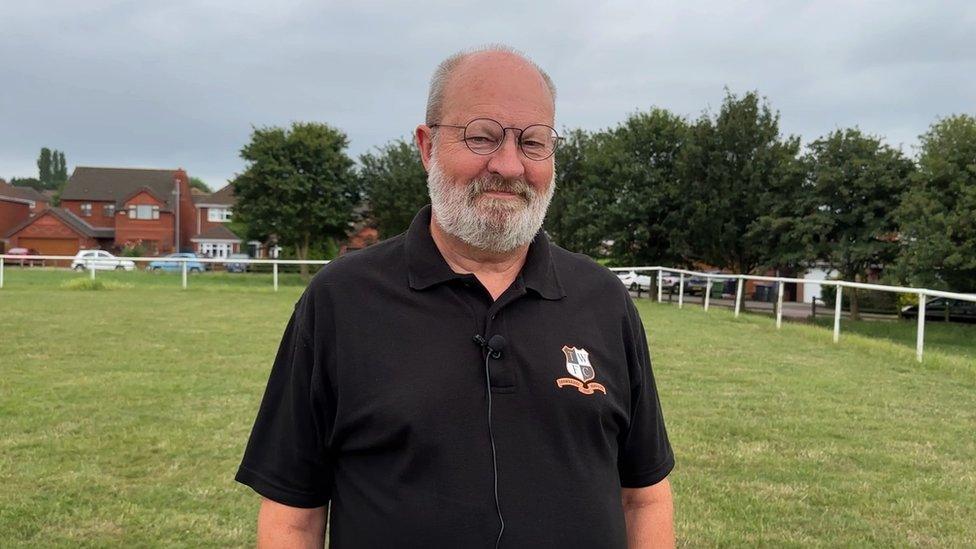
Mr Fox said the sport has been "boosted" by schools offering more opportunities to girls
Trowbridge Wanderers FC's Ladies Team has seen a rise in participation in the past year.
Gary Fox is a girls' development coach at the club.
Speaking about gender equality in the sport, he said: "I don't know if it was a stigma, but it was certainly a way things were until recently."
He said the idea originated in school PE lessons, where girls are typically taught sports like netball and rounders, whilst boys play football and rugby.
But football is now being offered to girls at infant and junior schools in Trowbridge, he said.
Mr Fox added that there is now "generally less divide in what boys and girls should do" and the barriers are being "broken down" by giving those interested in the sport an outlet to get involved with.
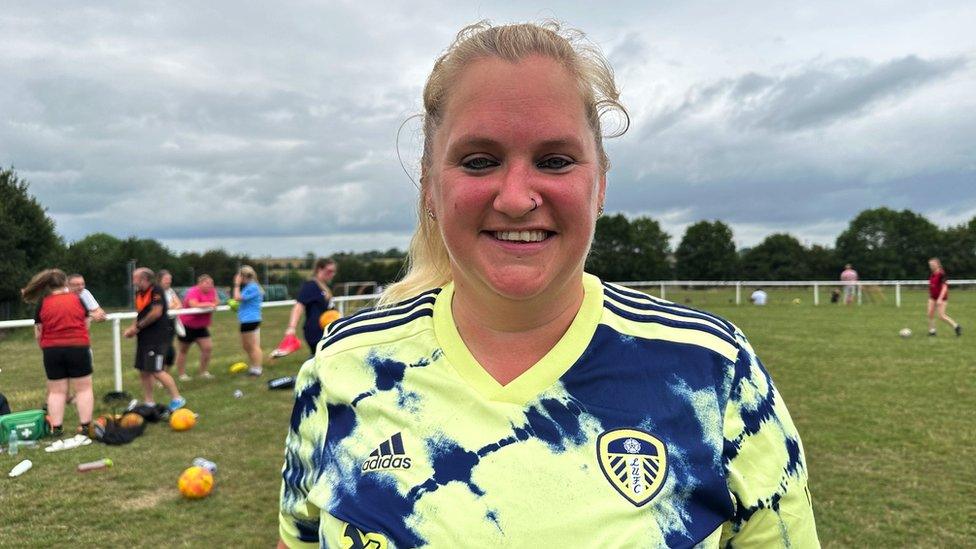
Ms Sawyer said it is “amazing” seeing so many Under 10s wanting to participate, and a lot of them mention the Lionesses
Jenna Sawyer is the captain of the ladies team and coaches the Under 10s team.
She said: "It's been a long time coming for ladies football to be recognised and I think their win [at the Euros] has achieved it."
"I do believe there still is that stigma that it's a man's game, but it is getting a lot better," she added.
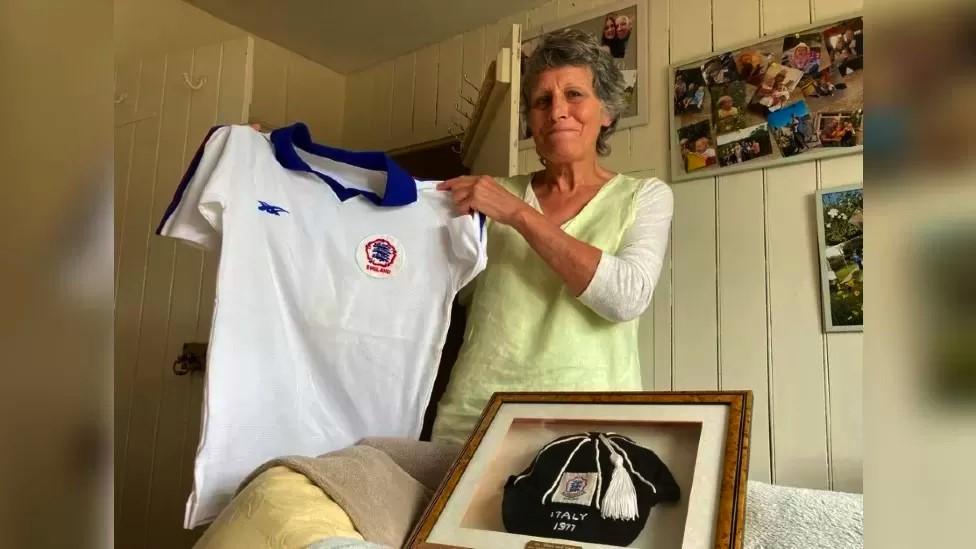
In October 2022, the first Lionesses were honoured with an international cap at Wembley Stadium
Eileen Foreman is a former professional footballer who lives in Warminster, Wiltshire.
She was selected to play for the first female England team in 1972, a year after the Football Association (FA) lifted its 50-year ban on women playing on professional pitches.
The ban was introduced in 1921 and a statement issued by the FA said: "The game of football is quite unsuitable for females and should not be encouraged."
'Just as equal'
"All the way around where we lived, I was the only girl that played really," Ms Foreman said.
"It was never encouraged, we were never allowed to play at school and women were banned from playing by the FA for 50 years."
Despite this, Ms Foreman played for Warminster Ladies FC before eventually progressing to the national team.
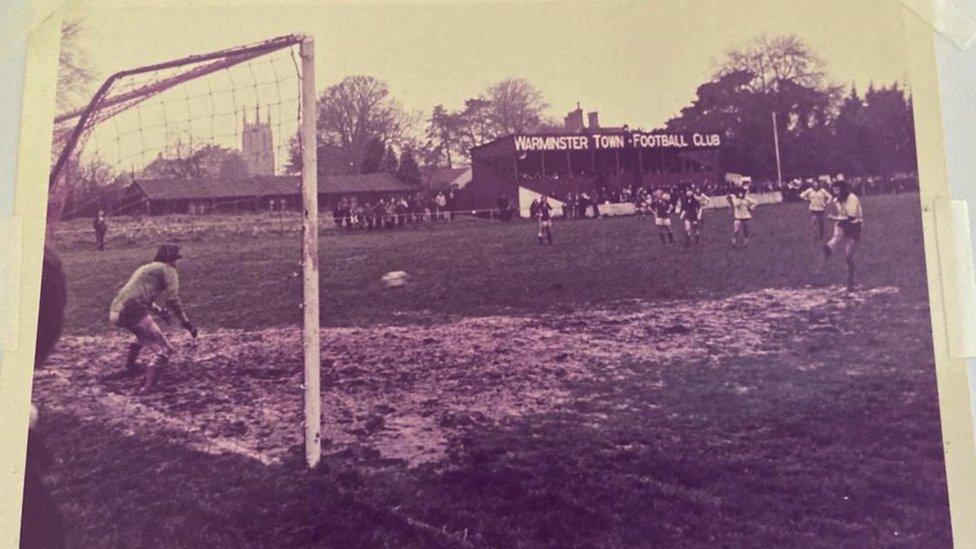
Ms Foreman taking a penalty at a Warminster v Lowestoft cup game
"When we first started, you had to convince people that it was possible," she said.
"Nowadays, [girls] don't have to do that - they can be just as equal as anybody else and just go out there and enjoy themselves."

Follow BBC West on Facebook, external, Twitter, external and Instagram, external. Send your story ideas to: bristol@bbc.co.uk , external
Related topics
- Published9 October 2022
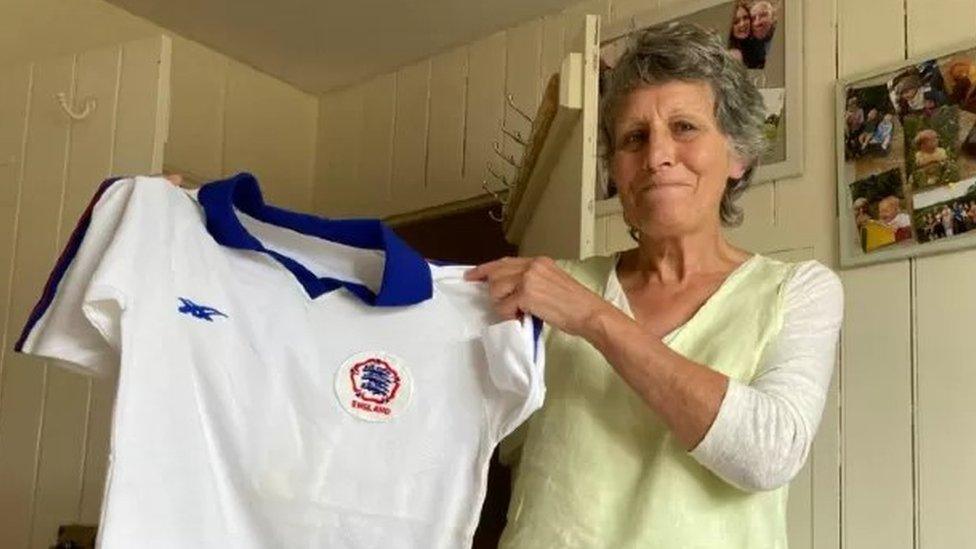
- Attribution
- Published7 October 2022
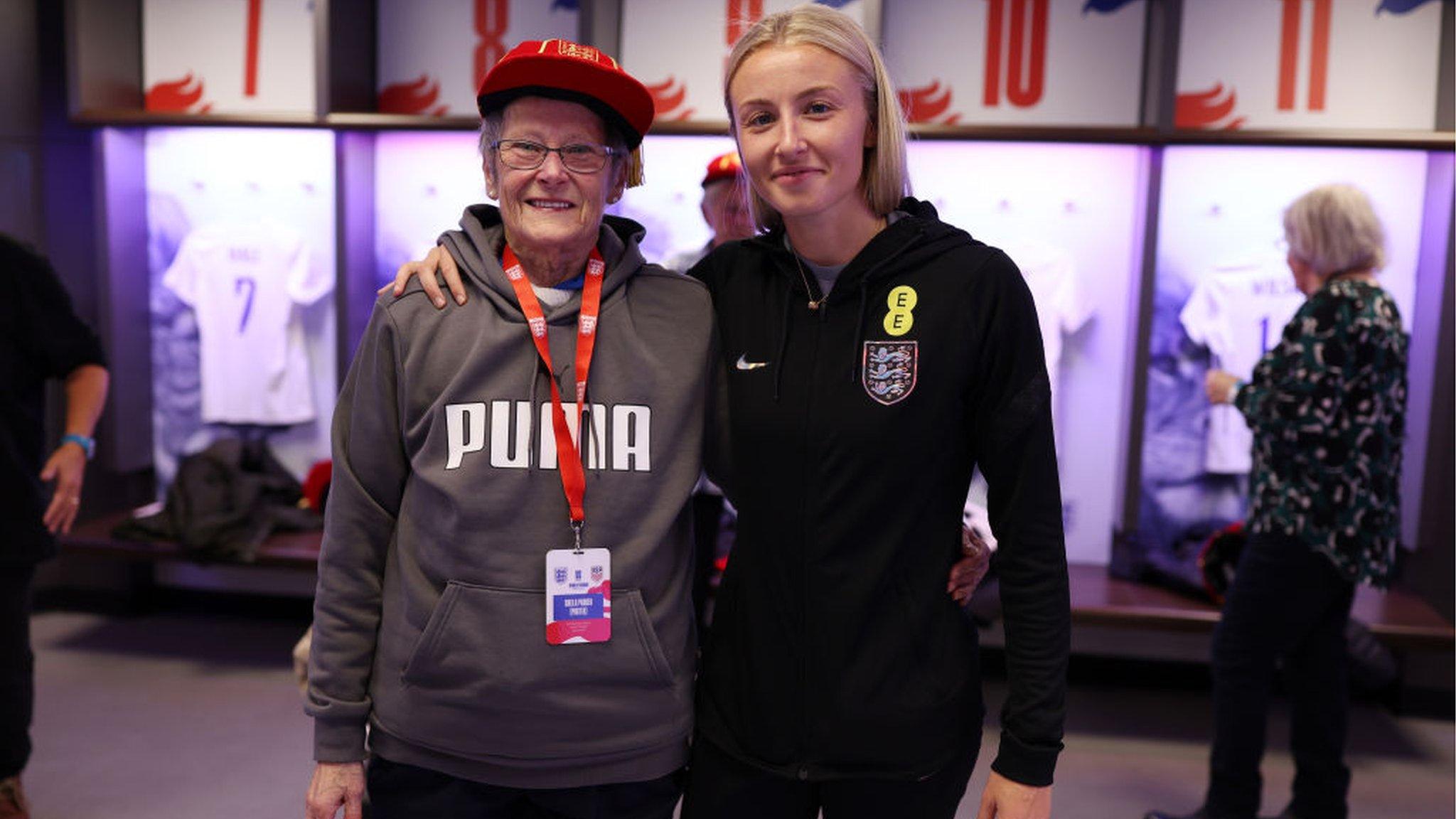
- Attribution
- Published3 August 2022
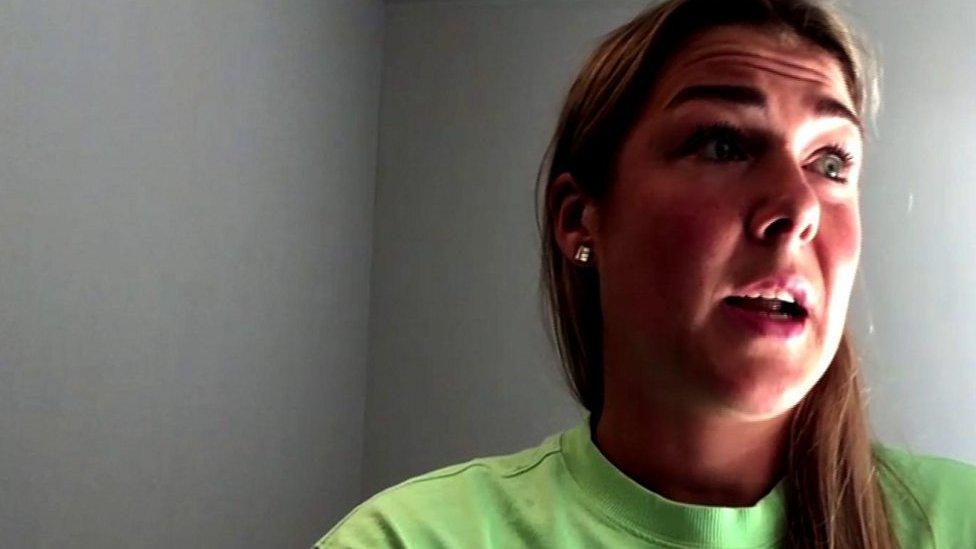
- Published4 August 2022
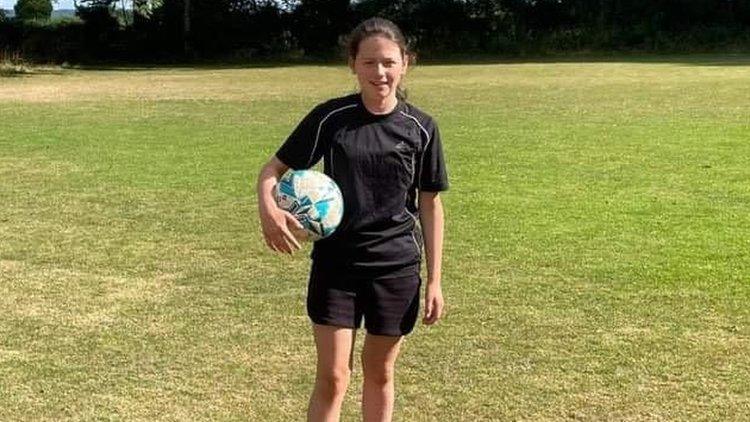
- Published1 August 2022
